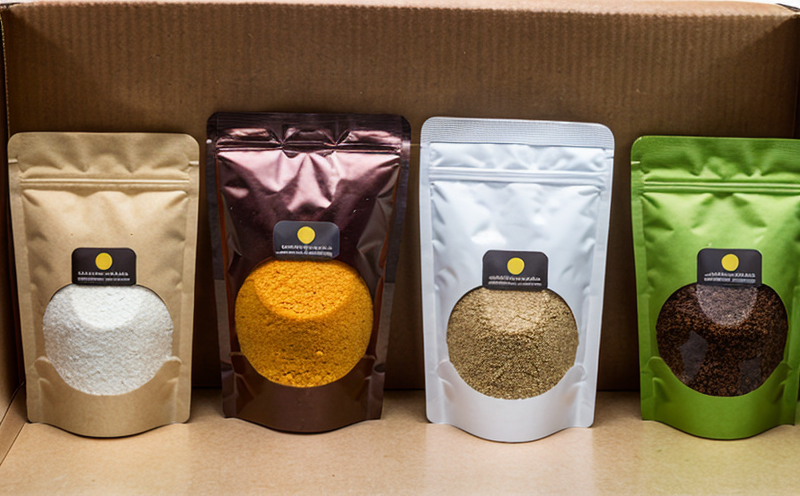Mercury Content Testing in Food Contact Articles
The testing of mercury content in food contact articles is a critical component of ensuring consumer safety and compliance with international standards. Mercury, a heavy metal, can be harmful to human health if ingested, especially through consumption of foodstuffs that come into direct contact with it. The presence of mercury in food packaging or containers can lead to contamination of the food, which could result in adverse health effects.
Our laboratory specializes in providing comprehensive testing services for mercury content in food contact articles, ensuring that products meet stringent safety and regulatory requirements. This service is particularly important given the increasing demand for safe and compliant consumer goods across various industries such as pharmaceuticals, cosmetics, and food manufacturing.
The process of mercury content testing involves several steps, including sample preparation, analysis using advanced analytical instruments, and interpretation of results against relevant standards. Our team follows internationally recognized guidelines to ensure accuracy and reliability in our test outcomes.
Compliance with regulatory requirements is essential for any business dealing with food contact materials or packaging. By partnering with us, you can rest assured that your products are being tested thoroughly and consistently across all necessary parameters. This service helps prevent potential recalls and protects your brand reputation while maintaining compliance with legal standards.
| Regulatory Standards | Testing Methodologies |
|---|---|
| US FDA 21 CFR Part 175.300 | Inductively Coupled Plasma Mass Spectrometry (ICP-MS) |
| EU Regulation EC/2024/678 | Atomic Absorption Spectroscopy (AAS) |
| ISO 15395:2018 | Microwave Digestion Followed by ICP-MS or AAS |
| Japan's PMD Act | Both Techniques Used Depending on Specimen Composition and Volume |
In summary, our mercury content testing service provides peace of mind knowing that your food contact materials are safe for consumer use. We adhere strictly to international standards like ISO 15395:2018, US FDA regulations, EU directives, and Japanese PMD Act requirements.
Scope and Methodology
To conduct mercury content testing in food contact articles, we follow a rigorous process that includes sample preparation, analysis using state-of-the-art instruments, and interpretation of results against applicable standards. The following steps outline our methodology:
- Sample Collection & Preparation: Our team collects samples from various sources ensuring they represent the entire batch or lot.
- Analytical Instrumentation: We utilize advanced analytical tools such as Inductively Coupled Plasma Mass Spectrometry (ICP-MS) and Atomic Absorption Spectroscopy (AAS).
- Data Interpretation: Results are compared against established limits set forth by relevant regulations.
This approach ensures accurate detection of mercury levels in food contact articles, providing reliable data for decision-making purposes.
Benefits
- Regulatory Compliance: Ensures adherence to local and international safety standards.
- Risk Management: Identifies potential risks early on in the production cycle.
- Consumer Confidence: Builds trust with consumers by demonstrating commitment to product safety.
- Competitive Advantage: Enhances brand reputation and market position through superior quality assurance practices.
- Legal Protection: Minimizes liability exposure in case of contamination incidents or recalls.
- Process Improvement: Provides insights into process efficiencies and areas for improvement.
By incorporating these benefits into your business strategy, you can significantly enhance the safety and quality of your food contact materials and packaging while staying ahead of regulatory changes.
Quality and Reliability Assurance
At our laboratory, we uphold strict quality control measures to ensure that every test result is accurate and reliable. Our team adheres to ISO/IEC 17025 accreditation requirements, ensuring that all testing processes meet the highest standards of precision and reliability.
We employ experienced technicians who are trained in using cutting-edge technology for mercury content analysis. Regular calibration checks and internal audits further guarantee consistent accuracy across all tests conducted here.
Our commitment to quality extends beyond just analytical capabilities; it encompasses continuous improvement efforts aimed at staying ahead of evolving standards and expectations within the industry. This dedication ensures that we deliver top-notch services tailored specifically towards meeting your unique needs related to food contact materials & packaging testing.





